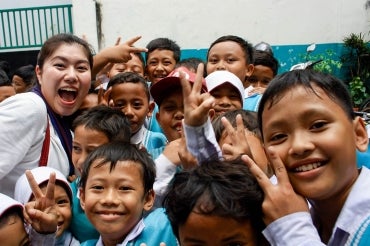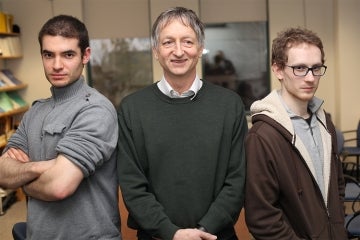Students explore diversity in Muslim world through U of T's International Course Module in Indonesia

Published: March 15, 2018
Undergraduate students who take Dylan Clark’s course in the Contemporary Asian Studies program at the University of Toronto's Munk School of Global Affairs, study Indonesia, which has the largest number of Muslims in the world. The course includes an International Course Module, during which students travel to do field research and gain a better understanding of Islam and how it is practised there.
On a recent nine-day trip, students visited Islamic boarding schools (called pensantren), and met with students, educators and religious leaders who encorporate Islamic values and texts in their daily lives, according to an article by Daviel Lazure-Vieira of the Munk School.
“We have seen a rise in misperception regarding Islam,” Jacques Bertrand, a professor of political science and director of the Asian Institute's Collaborative Master’s Specialization in Contemporary East and Southeast Asian Studies, told Lazure-Vieira. He supervised the students' research on the trip.
“Reporting on terrorism, ISIS, as well as the deep conflict in the Middle East leaves the impression that radicalism and extremist ideas are the norm within Islam and creates anxiety across many societies, including Canada. While we can certainly try to compensate by inserting more teaching on Islam, its political expression and its diverse forms in our curriculum, the experience of actually engaging directly on the ground provides a unique opportunity to learn multiple facets within a very short time period.”
“The Islamic narrative is usually shaped around the Arab countries of the Middle East. This trip challenged that notion for many of us,” says Aadil Randeree, a fourth-year economics and history student. “Having lived in the UAE for over 12 years, it was interesting for me to see how a majority-Muslim population can take different approaches to implementing Islam in government and society. From education to business, Islamic principles have been incorporated seamlessly into all aspects of Indonesian society.”
Read the full Munk School of Global Affairs article



